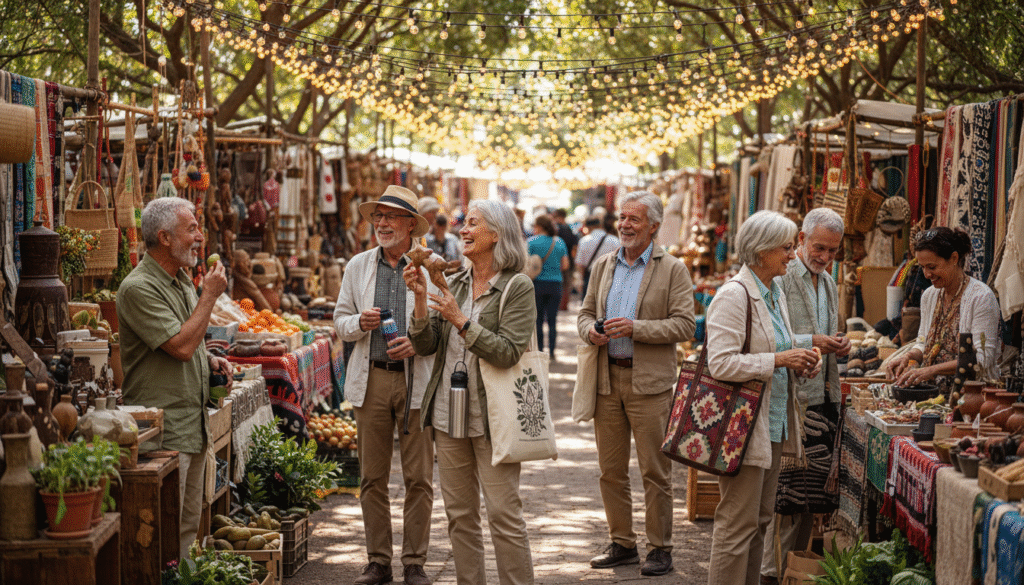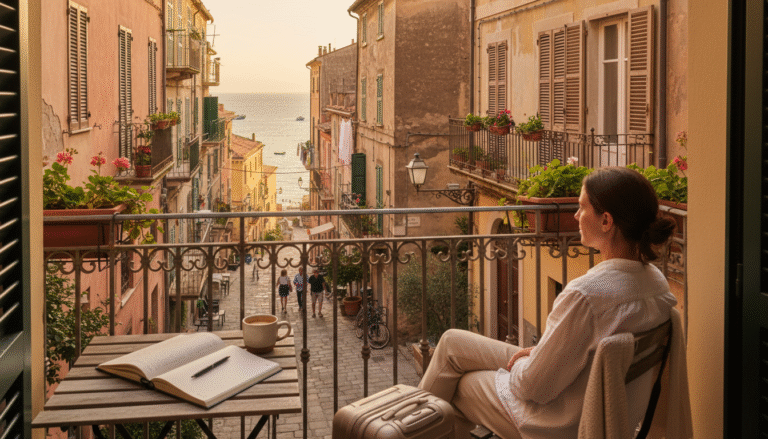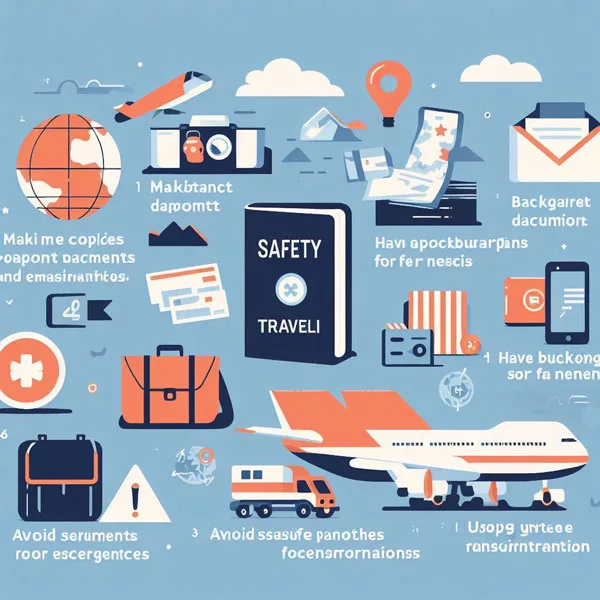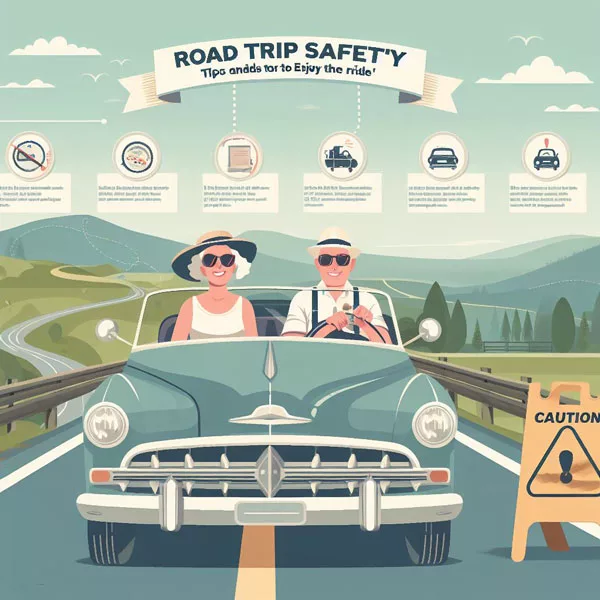Eco Travelers: How to Explore the World Responsibly—and Still Have a Blast
Eco travelers explore responsibly—cutting waste, supporting locals, and protecting nature—while keeping the fun, food, and spontaneity that make travel magic.
If you’ve ever stood in front of a breathtaking view and wondered, “Am I helping this place—or hurting it?” you’re already thinking like an eco traveler. Eco travelers aren’t perfect. They’re curious, kind, and intentional. They make small, smart choices—and still say yes to sunsets, street food, and serendipity. I’ll show you how to travel lighter on the planet without draining the joy from your trip. Think practical tips, zero guilt trips, and a few things I’ve learned the honest way (like why reef-safe sunscreen isn’t optional).
What you’ll get:
- Clear definition of eco travelers (no gatekeeping)
- Why eco travel makes trips better, not boring
- Doable tips for flights, stays, activities, and packing
- How to dodge greenwashing and avoid crowds
- A simple, human blueprint you can use on your next trip
Who Are Eco Travelers, Anyway?
Eco travelers are people who try to leave places better than they found them. It’s not about being perfect or rich or “granola.” It’s about choices:
- Cut the footprint where you can.
- Respect people and culture.
- Keep your money in local hands.
They’re the travelers who ask, “Who benefits if I book this?” and “Is there a lighter way to do that?” I’ve found most eco travelers are simply thoughtful. They care enough to pause—and then they act.
Core principles:
- Environmental care: lower emissions, less waste, protect nature.
- Cultural respect: learn, listen, ask permission.
- Local impact: pay locals, hire locals, learn from locals.
- Transparency: trust actions, not buzzwords.
- Long view: travel so others can love this place later, too.
Quick note: Eco travel isn’t “no fun, no flights.” It’s balance. It’s context. It’s intention. It’s considering a sustainable tourism.
Why Being an Eco Traveler Matters
Travel has a cost—especially flights. Aviation is a small slice of global emissions, but it’s concentrated. And overtourism can sap the soul from places. I felt it in Venice: cruise waves, crowded alleys, locals pushed out. It didn’t feel good.
Here’s the good news: your choices help. When you travel responsibly, you support conservation, fair jobs, and living culture. Groups like the UNWTO and the Global Sustainable Tourism Council have shown that responsible tourism practices works when communities lead and visitors choose well. And selfishly? Your trip gets better—fewer lines, more conversations, deeper memories.
Authentic Adventure: How to Travel Like an Eco Traveler (Without Killing the Vibe)

1) Next Trip: Pick Your Destination with Purpose
Choose places that protect what makes them special. Look for:
- Community-owned tours and locally run stays
- Visitor caps, protected areas, clear guidelines
- Tourism money reinvested in conservation
- Responsible wildlife policies (no touching, no tricks)
Yes, Costa Rica, New Zealand, Bhutan. Also: the incredible town two hours from you by train. Some of my best trips were close to home—lower carbon, zero jet lag, big smiles. Shoulder season is your friend: calmer, cheaper, kinder.
2) Air Travel: Fly Less—And Fly Smarter When You Do
Sometimes you need to fly. Make it count.
- Book direct when possible (takeoffs/landings burn most fuel).
- Fly economy (more seats = lower per-person emissions).
- Pack light (every kilo matters).
- Offset through verified programs (Gold Standard, VCS).

Great alternatives:
- Trains for sub–6–8 hour routes (they’re honestly relaxing).
- Intercity buses.
- Road trips in hybrids/EVs when transit won’t work. I try to replace one flight a year with a train. I arrive calmer—and I remember more.
3) Stay Where the Values Match
Skip the “green” label if it’s just marketing. If you don’t know where to look, ask the local population. Look for:
- Credible certifications (GSTC-recognized, Green Key, EarthCheck, LEED)
- Refill stations, no single-use plastic everywhere
- Renewable energy, water-saving systems
- Local hiring, fair wages, local sourcing
An Amazon eco lodge I stayed at ran on solar, trained local guides, and fed us from nearby farms. I left with stories, not just photos. I talked to the owner and I learned more about the local culture and cultural heritage.
Good picks:
- Unique accommodations options include eco lodges, small guesthouses, farm stays
- Hostels with clear sustainability policies
- Responsible camping (where it’s allowed)
4) Conscious Choices: Spend Like It Matters (Because It Does)
Money is power. Use it to back locals to contribute to their economic benefits.
- Eat at family places and street stalls
- Book community-led tours to help the local economy.
- Support local businesses. Buy handmade—and ask about the maker
- Tip fairly; use cash or local apps when preferred
Try a cooking class. Learn a greeting. Ask a question. My clumsy language attempts have unlocked a lot of laughter and some great meals.
5) Choose Low-Impact Fun
Green flags to consider on your future travels:
- Guided hikes on marked trails
- Kayaks, canoes, bikes to explore the natural environment
- Birding and nature walks with ethical operators
- Snorkeling/diving with reef-safe sunscreen
- Cultural workshops by local experts
Animal rule of thumb: If it looks too interactive, it’s probably not ethical. Watch from a respectful distance. The best moments are quiet ones.
6) Pack Lighter, Pack Smarter
Simple swaps make a big difference:
- Reusable water bottle (filter if needed), utensils, tote
- Solid toiletries and refills to reduce waste
- Mineral/reef-safe sunscreen to protect the natural areas of the deep
- A small, versatile wardrobe (natural or recycled fabrics)
- Power bank; solar if you’ll be remote
Two tiny heroes: a microfiber towel and a travel clothesline. Game-changers.
Greenwashing and Overtourism: The Straight Talk
Spotting Greenwashing
Ask for receipts—real ones.
- Trust certifications (GSTC-recognized, Green Globe, Green Key, Rainforest Alliance)
- Read recent reviews—search “sustainability,” “refill,” “solar,” “plastic”
- Email and ask. Good operators love to share the how.
Red flags:
- “We reuse towels” as the main claim
- No metrics, no targets, no reports
- Plastic everywhere; daily linen by default
Beating Overtourism (and Loving Your Trip More)
- Go in shoulder/off-peak seasons
- Visit secondary cities and rural regions
- Use timed entry, small groups, capped tours
- Stay longer; move less
I shifted an Iceland trip to shoulder season. Same magic, more space, better conversations.
Local Communities: Getting Around Once You’re There
- Walk first. It’s how places introduce themselves.
- Grab a bike or use bike-share and explore the beaten path
- Use buses/trams/metros—locals will help you figure it out.
- If you rent a car, go hybrid/EV.
- Share rides especially with local people when it makes sense.
Download offline maps and transit. You’ll feel smarter than your past self.
Eating Like an Eco Traveler
- Local products, seasonal dishes
- Plant-forward meals often
- Order what you’ll finish (share to sample)
- Street food and markets = small footprint, big flavor
- For seafood, use a trusted guide like Seafood Watch
I love early market runs: coffee, fruit, conversations. It’s culture you can taste.

Helpful Tech (Used Lightly)
- Offline maps and transit apps
- Accommodation filters for sustainability badges
- Carbon calculators
- Ecosia for searches
- HappyCow for plant-based finds
Then pocket the phone. You can’t “save to camera roll” the feeling of being there.
Sustainable Tourism: Why Your Choices Count
This isn’t abstract. It’s coral that still breathes. Forests that still stand. Families that can keep living where they’re from. The Global Sustainable Tourism Council and the Center for Responsible Travel point to real wins when locals lead and visitors choose responsibly: healthier ecosystems, fair jobs, resilient communities.
When I think about the places that changed me, I want them intact for whoever needs them next. That’s the heart of eco travel.
Build Your Eco Traveler Circle with Other Travelers
- Join sustainable travel groups
- Follow community-led operators
- Leave honest reviews that mention real practices
- Share one tip with a friend before their trip
Most of what I know, I learned from generous travelers. Pass it on.
Wrapping Up Your Eco Travel: Start Small, Travel Well
Eco travel isn’t perfection. It’s intention, repeated. Bring a bottle. Take a train. Pick the local guesthouse. Skip the animal show. Pack lighter. Travel slower. These choices stack up.
And they make travel better: more connection, more meaning, fewer “ugh” moments. You come home with stories you’re proud to tell.
If you want help tailoring this to your next destination, tell me where and when. I’ll suggest lighter-impact, high-joy options you’ll actually love.
Happy, sustainable travels, fellow eco traveler.
Frequently Asked Questions About Eco Travelers
What defines an eco traveler?
- Someone who minimizes impact, respects culture, and supports locals—on purpose.
How do I reduce my footprint when I travel?
- Fly less; go direct if you fly. Trains/buses for regional trips. Pack light. Walk, bike, use transit. Offset through credible standards.
Are eco-friendly stays pricier?
- Not always. Many guesthouses and hostels are both affordable and responsible. When it costs more, you’re often paying for fair wages and renewables.
How do I avoid greenwashing?
- Look for solid certifications, recent reviews with specifics, and clear actions (not slogans). Ask questions.
Can eco travel still be fun?
- More fun. Think: sunrise kayaks, markets, night walks, small-group hikes, cooking classes. Less queue, more “wow.”
Is eco travel only for nature lovers?
- Cities can be eco, too: metros, markets, museums, parks, neighborhood cafés, small hotels with real policies.
How do eco travelers support local communities?
- Spend locally. Hire local guides. Respect customs. Tip fairly. Leave reviews that help others find ethical businesses.
If I have to fly, what helps?
- Direct/economy, lighter bags, fewer trips but longer stays, verified offsets. Replace short flights with trains when you can.
How do I tell if wildlife tourism is ethical?
- No touching, riding, or performing. Observe at a distance with operators who follow science-based rules.
What’s the simplest way to start?
- Pick one habit: bring a bottle, take a train, book a local stay, travel in shoulder season. Then add another next time.








One Comment
Comments are closed.